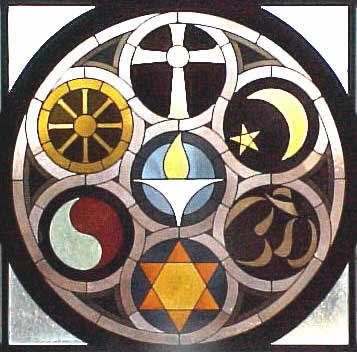As I reflect on the evolution of Universalism in the West I find something rich and exciting.
It all, of course, starts with the peculiarities of religion in the West and the whole idea of a soul as something intertwined for a while with the body but is essentially not of the body, and with death goes on to something. Again, in the West, mainly within Christianity and Islam there’s a judgement day based certainly for the mainstream of Christianity and Islam not so much on what one has done in life, but what allegiances one has made, which team one has signed on to.
Western Christian Universalism is rooted in a rather different view of the deity. For Universalists the bottom line from then to now is a reconciling love. The major divides between the schools of Universalism have only been in whether there is a time for purification before that ultimate reconciliation.
Now, one harsh way of putting the original view was “all dead people go to heaven.” Boiled down it raises all the derision I think the whole idea of souls and heavens and hells deserve. Such a cosmos is one strange and nasty place. Okay, perhaps mirroring the strange and nasty within which we live. It is strange. And it is nasty.
But, it, this cosmos, our world, our lives, is also lovely beyond all calculation.
And I’m very much taken with the evolution of Universalism over time.
I think the next step is a realization that one story weird or whatever can’t quite encompass the great mess.
And that next Universalist impulse is that all religions are true.
For me there is a falling short here. I am totally with the impulse. But there’s a problem. All religions are not true. Or, at the very least, it is somewhere close to impossible to reconcile the core messages of all religions – even the five or seven, whatever your favorite count might be, so-called “world religions.”
And…
And there is an emerging understanding for Universalism that makes a world of sense to me.
All religions contain that which is necessary to salvation.
(salvation as in salve: to heal. The heart of reconciliation. The heart of love.)
All is always problematic. But, as I cast my eye over these things, I see possibilities of heart, I see insights into the miracle of our manifestation into this world as individuals, and I see intimations of the great web that includes every one of us in something vast and terrible and lovely and true.
Here I think we see a Universalism that is a lamp hanging in front of us as we make our way through the night, casting a light, showing us a way.
Something good.
Something birthing hope into this world.
Something lovely.
(By the bye, full credit on the lovely illustration. It is the “Rhenberg Window” hung at the Rockford Unitarian Universalist Church, in Illinois.)













